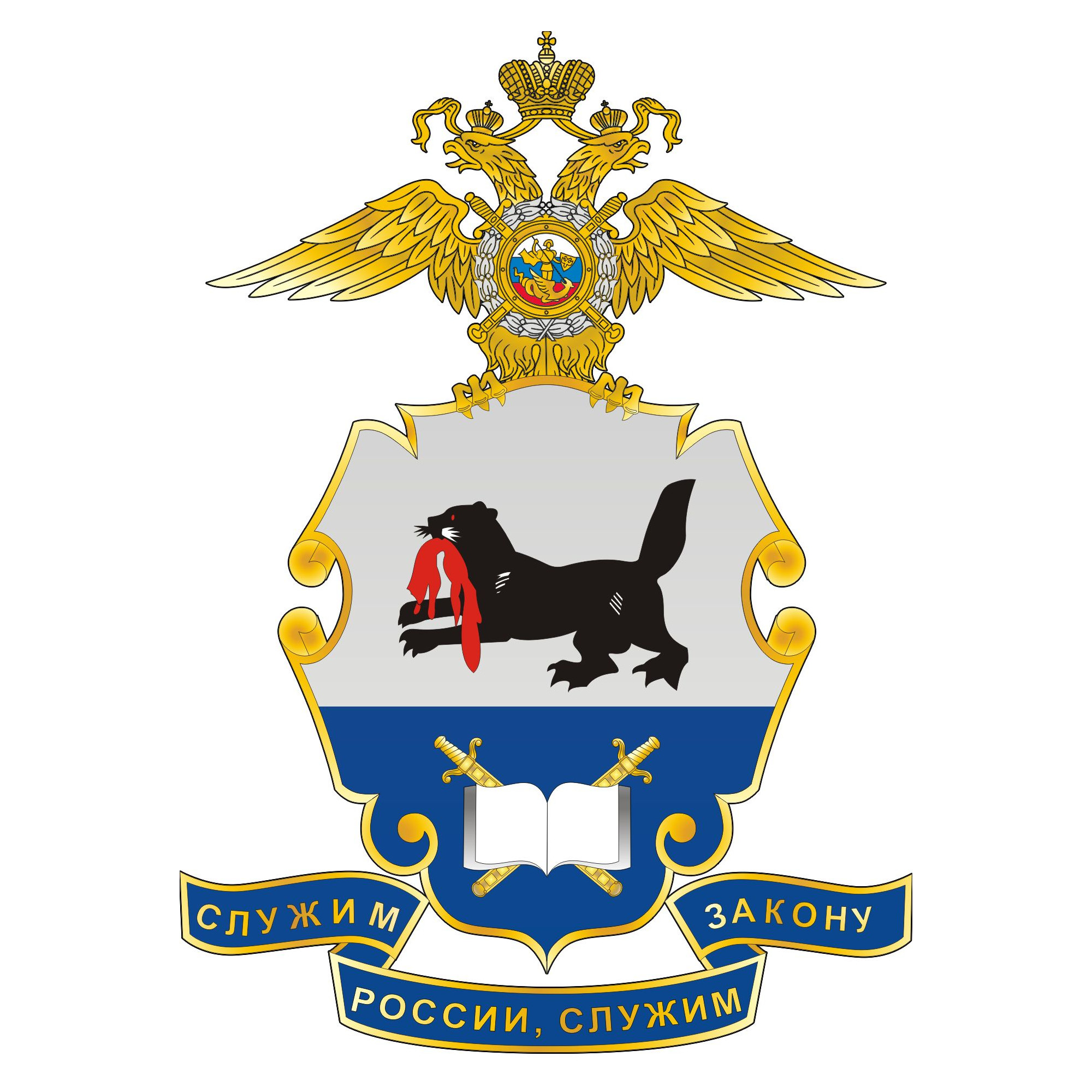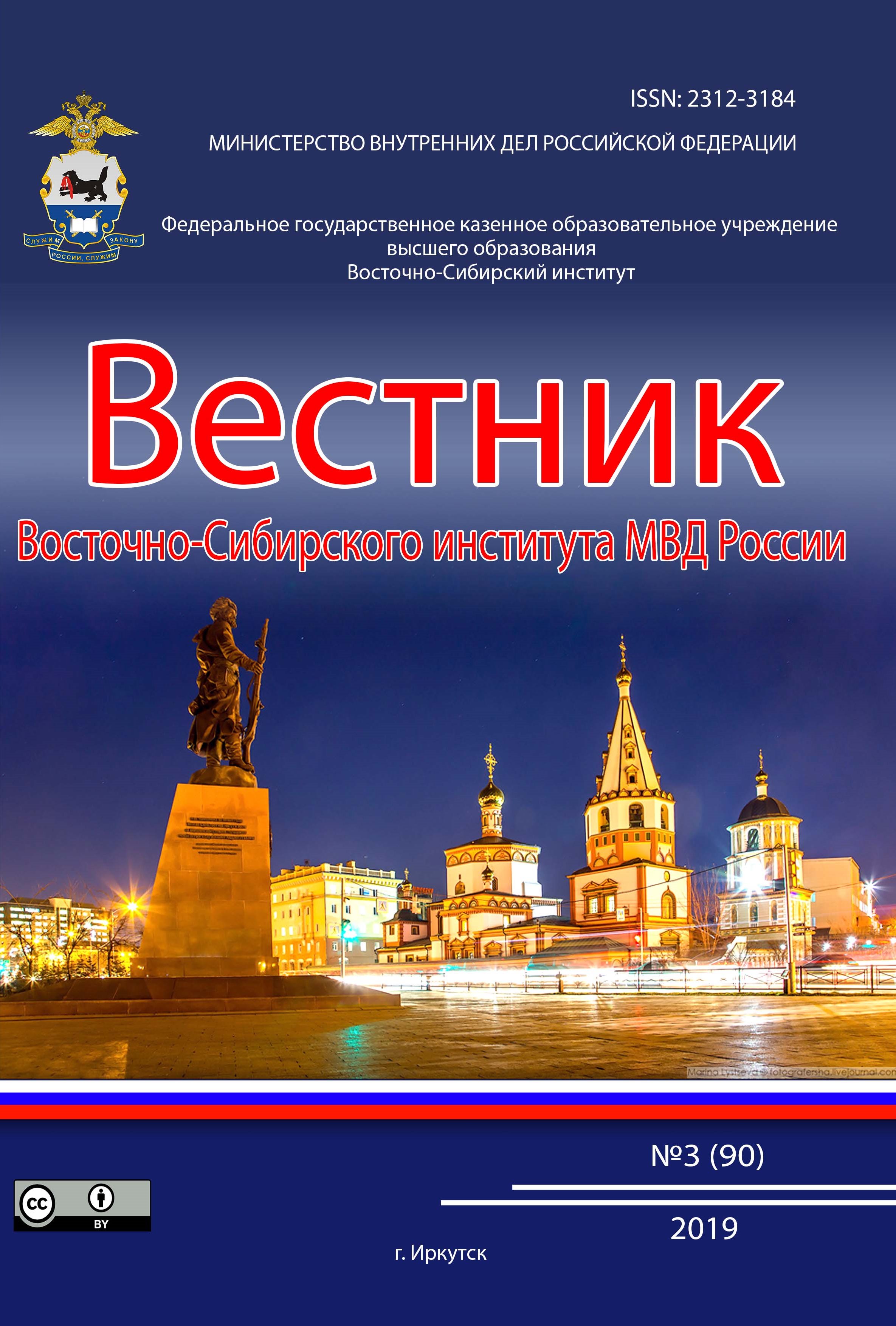Irkutsk, Irkutsk region, Russian Federation
Introduction: The article examines theoretical and methodological approaches to understanding sovereignty as an integral feature of the state, defined as: sovereignty of the will of the people, acting as the source of state power; sovereignty of the state apparatus of power as the bearer of public power; sovereignty of the territorial organization of public power, ensuring the unity and integrity of the state. The analysis of the legal policy pursued by Russia to ensure sovereignty and national security is carried out. The reasons and stages of legislative regulation in national law of responsibility for crimes of peace and security of mankind are defined. Materials and Methods. In the course of the study were used general scientific and private-scientific methods, which allowed to reveal the theoretical and methodological foundations of understanding the sovereignty of the state, to analyse Russia's legal policy to ensure national security, to determine the causes and stages of legislative regulation in national law of responsibility for crimes against peace and security of mankind. The Results of the Study. The diversity of approaches to the understanding of sovereignty as a feature of the state is revealed. The concept of sovereignty of the will of the people and the state apparatus of power as a source and carrier of state power is considered. The principles of ensuring the sovereignty of the state as a territorial organisation of public power that ensures its unity and integrity are defined. The reasons are outlined and the stages of the legal policy pursued by Russia to ensure sovereignty and national security in the context of ensuring peace and security of mankind are highlighted. Findings and Conclusions. At the current stage of legal regulation, a significant importance is assigned to further improvement of the lawmaking process and development of legal techniques that allow at the legislative level to respond in a timely manner to new challenges caused by a qualitatively new stage in the development of international and interstate relations, associated with the renewal of the world order and posing significant threats to the preservation and maintenance of state sovereignty. The ongoing transformation of international relations, which has led to changes in both the architectonics of the world order and the structure of the world order, has provoked an increase in local conflicts and threats that contribute to the reduction of the level of global and national security. Military-political concepts declared by a number of foreign states confirm their desire to increase the hotbeds of geopolitical conflict. One of the measures of strategic planning is a consistent legal policy of the state on the formation and timely modification of legal means to ensure the sovereignty of the state, peace and security of both individual peoples and states, and humanity as a whole. Countering negative trends associated with the development of neo-Nazism, the rehabilitation of neo-fascism, the propaganda of genocide, extremist ideology, Christianophobia, Islamophobia and anti-Semitism should be recognised as key areas contributing to the solution of contemporary problems in the sphere of ensuring peace and security of mankind.
state, sovereignty of the state, national security, legal policy, security of the world and humanity
1. Gavryushkin K. A. Vzaimosvyaz' kategorij «pravovye interesy», «pravovye celi» i «pravovye cennosti» v pravovom regulirovanii na sovremennom etape gosudarstvenno-pravovogo stroitel'stva [Relationship of the categories "legal interests," "legal goals" and "legal values" in legal regulation at the present stage of state-legal construction]. Vestnik Vostochono-Sibirskogo institute MVD Rossii – Vestnik of the East Siberian Institute of the Ministry of Internal Affairs of Russia.2024, no. 4 (111), pp. 9-19.
2. Kokoshkin F. F. Lekcii po obschemu gosudarstvennomu pravu [Lectures on general state law]. Moscow: Br. Bashmakov, 1912, 306 p.
3. Korkunov N. M. Lekcii po obschej teorii prava [Lectures on the general theory of law]. St. Petersburg, 1914, 430 p.
4. Shershenevich G. F. Obschaya teoriya prava [General theory of law]. Moscow: Publishing House of the Bashmakov Brothers, 1910, 814 p.
5. Paliyenko N. I. Suverenitet: istoricheskoe razvitie idei suvereniteta i ee pravovoe znachenie [Sovereignty: The historical development of the idea of sovereignty and its legal significance]. Yaroslavl, 1903, 567 p.
6. Baburin S. N. Mir imperij: Territoriya gosudarstva i mirovoj poryadok [The World of Empires: The territory of the state and the world order]. St. Petersburg, 2005, 769 p.
7. Drabkina E. Ya. Nacional'nyj i kolonial'nyj vopros v carskoj Rossii [The national and colonial question in Tsarist Russia]. Moscow, 1930, 182 p.
8. Grachev N. I. Proishozhdenie suvereniteta: Verhovnaya vlast' v mirovozzrenii i praktike gosudarstvennogo stroitel'stva tradicionnogo obschestva [The origin of sovereignty: Supreme power in the worldview and practice of state building of a traditional society]. Moscow, 2009, 320 p.
9. Sharifov M. Stanovlenie i istoriya razvitiya instituta suvereniteta [Formation and history of the development of the Institute of sovereignty]. Baku, 2009, 143 p.
10. Khalatov A. R. Suverenitet kak gosudarstvenno-pravovoj institut [Sovereignty as a state-legal institution: Abstract of the dissertation of the candidate. jurid. Sciences]. Volgograd, 2006, 30 p.
11. Shevtsov B. C. Gosudarstvennyj suverenitet: Voprosy teorii [State sovereignty: Questions of theory]. Academy of Sciences of the USSR. Institute of State and Law. Moscow, 1979, 300 p.
12. Goryunov V.V. Gosudarstvennyj suverenitet kak konstitucionno-pravovaya konstrukciya [State sovereignty as a constitutional and legal structure]. Akademicheskij yuridicheskij zhurnal –Academic Law Journal, 2005, no. 4, pp. 4–7.
13. Brutents K. N. Protiv ideologii sovremennogo kolonializma [Against the ideology of modern colonialism]. Moscow, 1961, 359 p.
14. Grotius G. O prave vojny i mira : Tri knigi, v kotoryh ob'yasnyayutsya estestvennoe pravo i pravo narodov, a takzhe principy publichnogo prava [On the law of war and peace: Three books explaining natural law and the law of nations, as well as the principles of public law]. Moscow, 1994,867 p.
15. Degtyareva M. I. Razrabotka ponyatiya suvereniteta Zhanom Bodenom [Development of the concept of sovereignty by Jean Bodin]. Polis (Politicheskie issledovaniya) – Polis (Political studies). 2000, no. 3, pp. 157–169.
16. Hegel G. W. F.. Filosofiya prava [Philosophy of law]. Moscow, 1990, 24 p.
17. Gitinova M. M., Abdulaev A. A. Mezhdunarodnye istochniki prava o voennyh prestupleniyah i prestupleniyah protiv mira i bezopasnosti chelovechestva [International sources of law on war crimes and crimes against the peace and security of mankind]. Sovremennyj uchenyj –Modern scientist. 2020, no. 2, pp. 262–266.
18. Nuriev D. S. Mirovoe soobschestvo o neobhodimosti konsolidirovannogo razresheniya problem obespecheniya mira i bezopasnosti chelovechestva [The international community on the need for a consolidated solution to the problems of ensuring peace and security of mankind]. Evrazijskoe nauchnoe ob"edinenie – Eurasian Scientific Association. 2021, no. 8-2 (78), pp. 171-173.
19. Bekbulatov A. E. Ponyatie prestuplenij protiv mira i bezopasnosti chelovechestva sudarstva i mirovoj poryadok [The concept of crimes against the peace and security of mankind]. Novaya nauka: opyt, tradicii, novacii - New science: experience, traditions, innovations. 2016, no. 11-2, pp. 144-147.
20. Vasiliev S. S. Osobennosti pravovogo regulirovaniya prestuplenij protiv mira i bezopasnosti chelovechestva [Features of the legal regulation of crimes against the peace and security of mankind]. Ekonomika i socium – conomics and society. 2021, no 6-1 (85), pp. 505-508.
21. Jorobekova A.M., Nuriev D. S. O teoretiko-pravovom analize ponyatijnogo apparata agressii kak suschnostnoj harakteristiki prestuplenij protiv mira i bezopasnosti chelovechestva [On the theoretical and legal analysis of the conceptual apparatus of aggression as an essential characteristic of crimes against the peace and security of mankind]. Evrazijskoe nauchnoe ob"edinenie – Eurasian Scientific Association. 2021, no 7-2 (77), pp. 121-124.
22. Levasheva O. V., Baranova M. I. Obschee polozhenie o yurisdikcii regulirovaniya prestuplenij protiv mira i bezopasnosti chelovechestva [The general provision on the jurisdiction of regulating crimes against the peace and security of mankind]. Zakon i pravo – Law and Law. 2022, no. 12, pp. 189-191.












